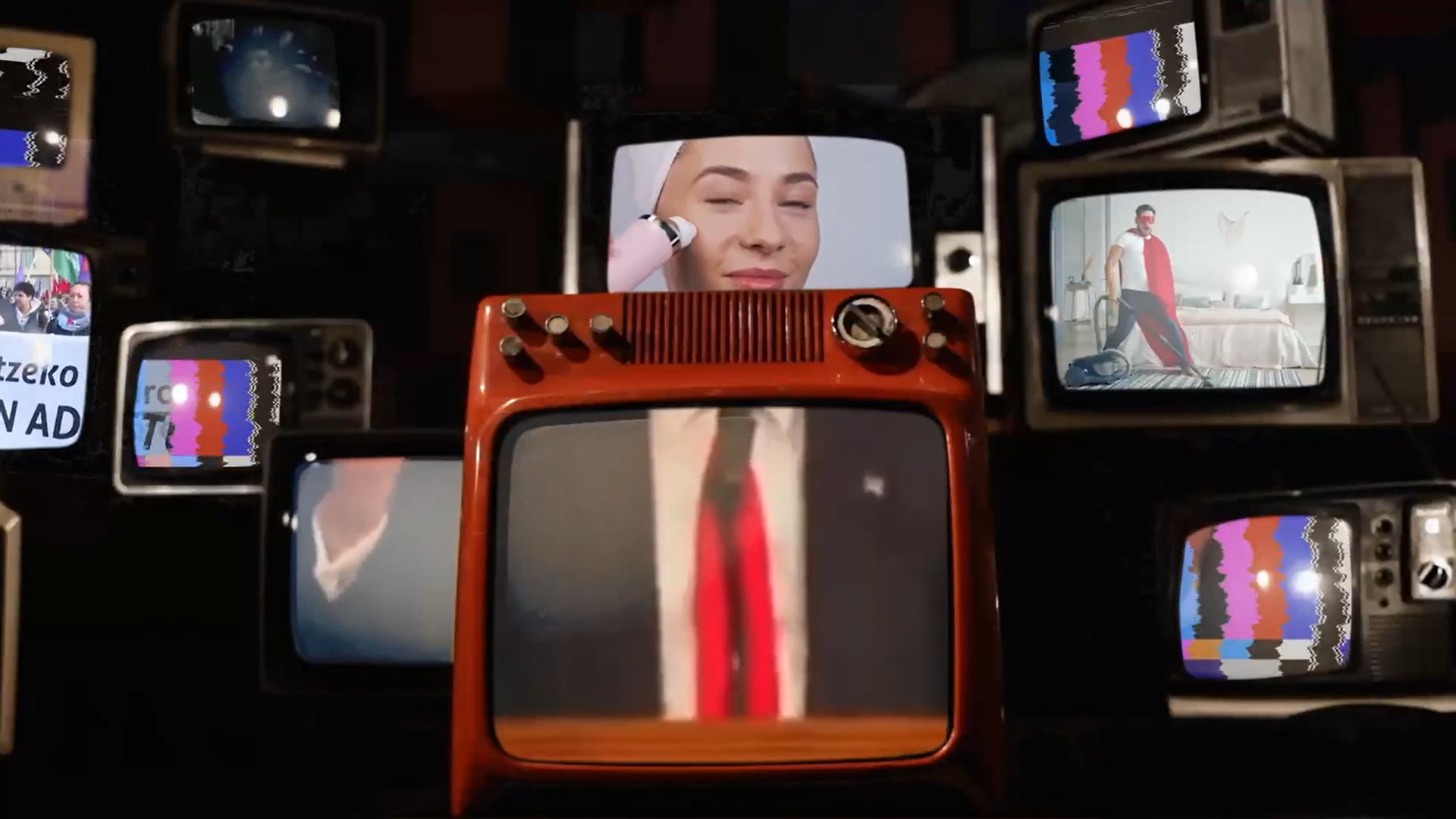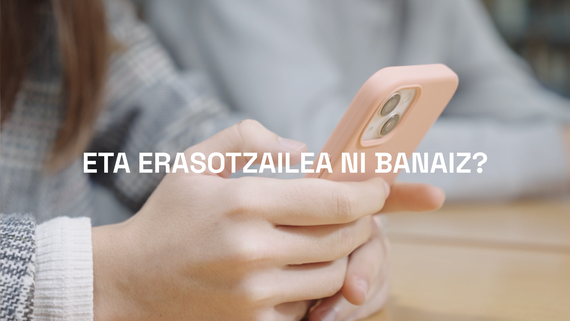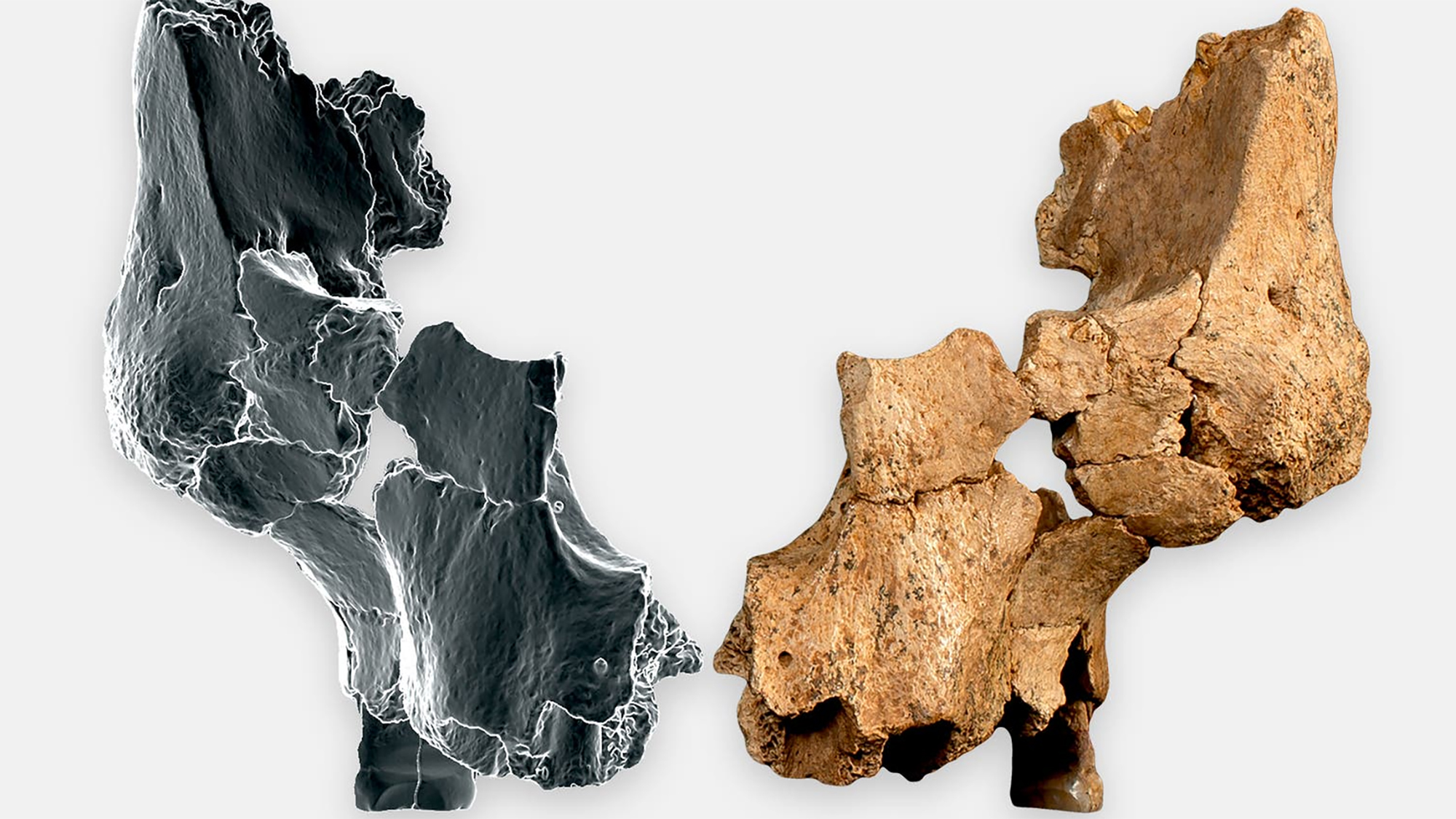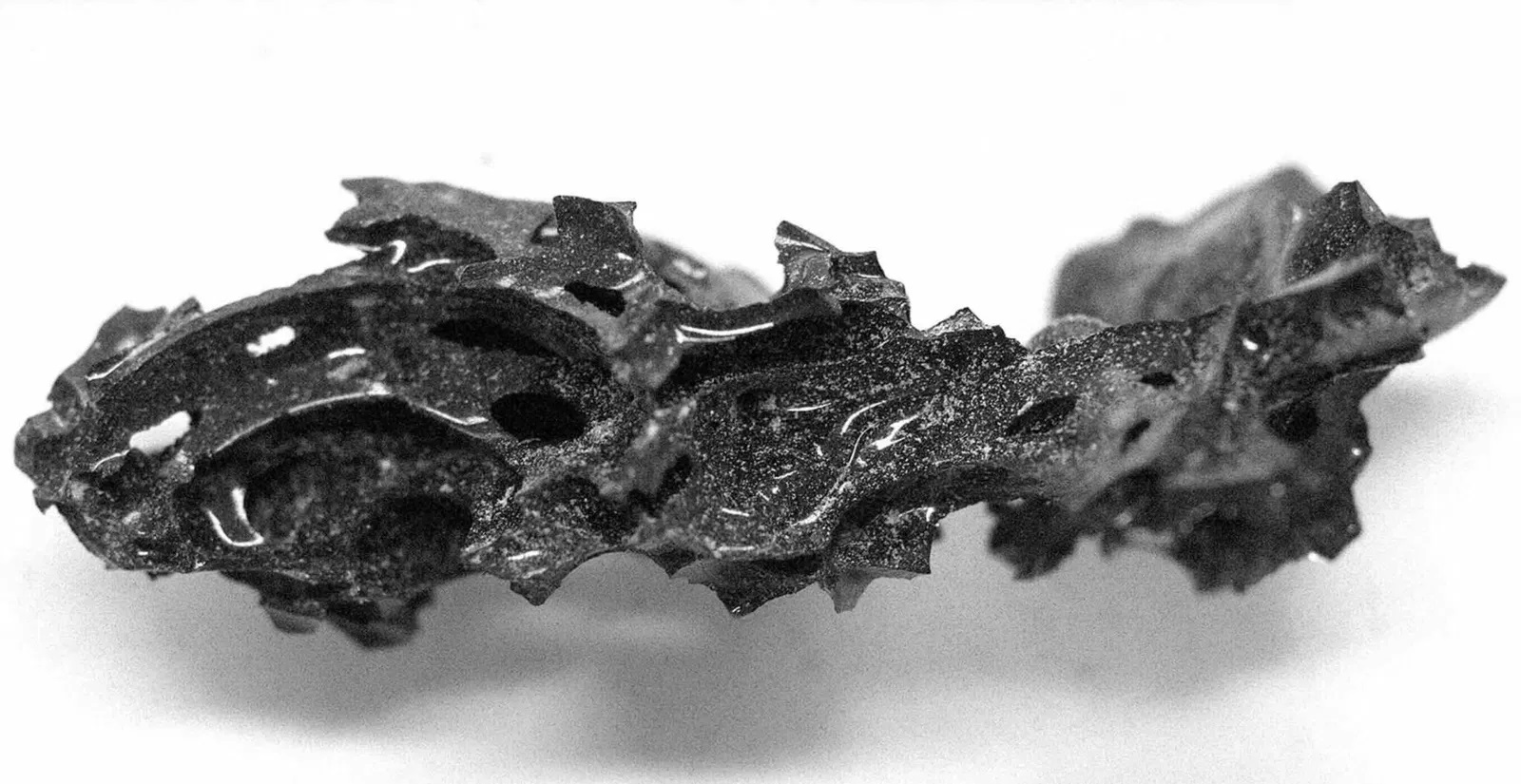"Through assisted reproduction we are recreating a certain vision of the world"
- Currently, it is mainly dedicated to assisted reproduction, where it analyzes not only how lives are produced through scientific techniques, but also how the conceptions of the world are reproduced.
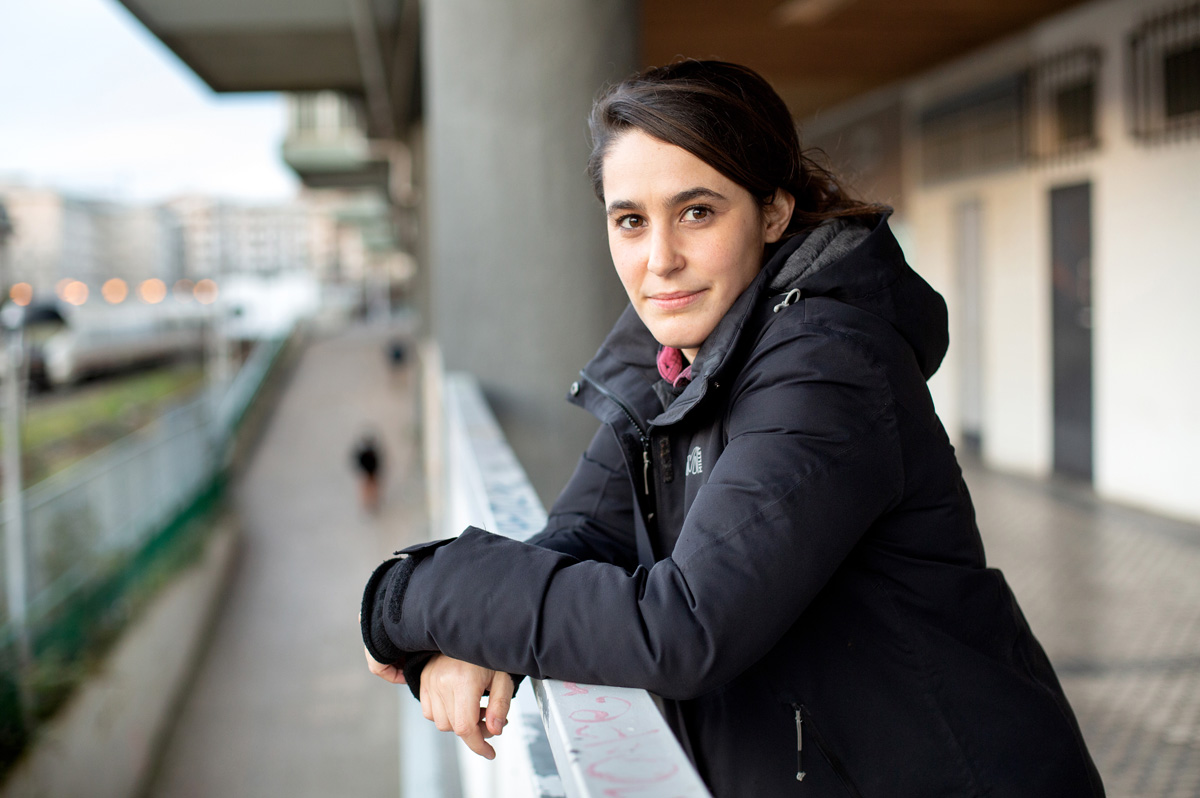
Sara Lafuente doktore ondoko ikerlaria da Frankfurteko Goethe Unibertsitatean. Soziologia ikasi zuen Madrilgo Complutensean, eta ondoren biomedikuntza eta biozientzien inguruko masterra London School of Economics-en. Lagundutako ugalketaren inguruko diskurtso zientifikoak aztertu ditu, queer teoria, epistemologia feministak eta zientziaren azterketa sozialak lotzen dituen begirada kritiko feministatik.
He made his thesis in the field of biosciences and biomedicine. But did you study sociology, no?
That is true. My family has always been very literate. My two parents were in college, and even after I was born, my mother continued to study and became a university professor. His father was a journalist, and his sister studied sociology. And so do I. Most of all, I was interested in social movements. I was drawn to the assembly and wanted to know the social structures to reflect on possible changes. But my studies were pretty boring at first. Towards the end, however, I met younger teachers who worked in political sociology. Elena Casado, Amparo Lás, Carmen Romero… They analyzed social changes from a gender perspective and from a technological mediation perspective. I was especially attracted to this way of questioning science and knowledge itself. Knowing that all knowledge is situated. That science is not neutral and that it is not built on nothing. Science is a story, a way of talking about life, and I wanted to analyze that story.
From the interest in social movements to the study of medicine and biosciences.
They are not so far away… Biology and medicine define the world and our way of seeing ourselves. They define who we are. We often see power in law, in economics, in politics -- but science is also power. Scientific discourses also structure society. And I experienced the experience twice.
When I was little I had health problems and spent time in the hospital. I had direct contact with the medicine. I was sick and healed. I crossed the border between the sick and the healthy. And I think that having lived through that transition left my mark. Footprint and curiosity.
On the other hand, the fact of having left hetero-regulation in adolescence can also influence the choice. This confronts you with speeches about body, sexuality and reproduction, and back to that boundary between normal and non-normal. And you see with your own eyes that that boundary is built. That your body is not in itself “on the other side”. That discourses build differences.
She took the master’s degree and started researching… with parthenogenesis. What the hell is that?
Parthenogenesis is a type of reproduction. It happens in all types of animals, except mammals. It's mostly produced in insects. Or in the big lizards of the world, in the dragons of the conode. In this type of reproduction, embryos arise from an unfertilized egg and therefore new lives. The male gamete does not participate in reproduction. And it's said that all animals of this species are females. What does it mean to be “female” in a context like the current one? In fact, parthenogenesis is also defined as the reproduction of virgin females. What is virginity? It has also been written that these “females” imitate courtship and concealment behaviors of “males”. How are you going to imitate a “male” who doesn’t exist? To speak this way would make no sense if our way of understanding reproduction was not based entirely on the hetero-norm.
How did she go from researching parthenogenesis to researching assisted reproduction? Isn't that a terrible leap?
Not so much. You can talk about parthenogenesis because our way of understanding our reproduction is defined by the limits of our conception of the world. The same thing happens when we talk about assisted reproduction. We talk about reproduction as if we describe a neutral natural process in pure tune, but that's not the case. Likewise, in assisted reproduction it seems that we are reproducing a natural process, simply, but we are really creating a reality according to our culture.
Let's start at the beginning. Why isn't our way of understanding reproduction neutral?
Imagine. When we talk about eggs and sperm, we tend to describe an almost romance. They're two very identifiable cells, one with man and the other with woman. We present sperm as hero and egg as passive. It's the sperm that makes the way and penetrates the egg. The egg is activated when it's penetrated, and that's where the magic emerges.
Because we have that imaginary, we have the assisted reproduction techniques that we have here and not others. In fact, eggs, for example, are not isolated cells. They're actually part of a set of cells. These are cells that surround the egg, for example, that connect sperm and egg cells. The sperm is approaching chemical attraction and it seems that they are also the ones making a selection among the sperm. These cells absorb the sperm and introduce it into the egg. In assisted reproduction, on the other hand, these cells in the area are removed and the spermatozoid enters the egg through a needle, as we imagine it would be. That is, we created a scientific account in which cells would be isolated and then we used techniques to isolate them.
I'm not saying that that kind of play doesn't work, of course. In this way, more than 10 million people have already been created. What I'm saying is that not only do we generate children through assisted reproduction, but we reproduce and strengthen our culture and our worldview.

Why should we study the discourses on assisted reproduction?
The point is that in the case of assisted reproduction, the construction of speeches is very obvious and provides a lot of information. For example, when you talk about surrogate gestations, all the weight of parenthood will get into the genetic material: it's your child, because it has your genes. However, in the same clinics, in the case of egg donation reproductions, the emphasis is on pregnancy: these nine months are the ones that really do to a mother, because there is a link between the child and the mother. These paradoxes make visible how our way of understanding reproduction is culturally negotiated.
You, especially, have studied assisted egg donation reproduction. He says that in recent years a business has developed around egg donation.
In recent years there has been an important growth of assisted reproduction itself and the emergence of new market niches around biological material. 8% of births in the Spanish state are of assisted reproduction and one in four born with in vitro techniques is of donated eggs. But the issue goes further. The Spanish State has a much more commercialised egg donation system than the surrounding States, is anonymous and financial compensation is offered to the donor. In some states, such as Germany, it is prohibited. In other cases, such as in Portugal or the United Kingdom, the donation is not anonymous. There are countries that do not offer economic compensation, such as France, or economic compensation is not as attractive, or people are not precarious enough to deserve compensation. In Spain, all the requirements for private clinics to do business are met, both with national consumption and with reproductive tourism.
What is offered specifically in these private clinics?
Healthy and bred children are offered. For this purpose, a selection of embryos is made, of course, by genetic tests. And those that are discarded are not only the embryos that would not advance, but also the embryos that, globally, are defective (like those of Down syndrome or those that we know are going to produce intersex bodies).
As for being binculated, we refer to similarity. Based on donor genetic analysis and conducting sperm and egg consistency studies, among others, it is sought that the child resembles the non-biological parent. Both in mixed couples and single mothers and in lesbian mothers. In this way, the optical illusion of “gene confusion” is sought, so that the cozy family is as close as possible to the idea of the perfect heteronormative family. And it's not just what you're looking for. It seeks to make donors more normative than recipients. More beautiful, thinner, not too low, lighter skin… This doesn’t mean that people who come to these clinics ask for it. That is not the case. There are even people who are uncomfortable with that idea, of course. The point is that this is part of the business model; and that treatments to meet people's reproductive desires are offered in that context.
And eggs, who gives them to who?
Through egg donation, reproductive capacity usually goes from a younger body to a more mature body. But also from a more precarious body to a body with a more stable economic position. This does not mean that all receptors are high class. Precarious people can also have more precarious people underneath.
Clinics often indicate that donors are college students, but often they don't. Many are precarious women. And a lot of migrants, although with this latest crisis it seems that the proportion is going to fall. For phenotypic coordination, you look for eye, hair and skin colors, of course. And, for example, on the Mediterranean coast, the eggs of migrants from Eastern Europe are the ones who want the most.

How much do eggs pay?
It is usually around a thousand euros. The previous hormonal process and the treatment itself are very scarce. The thing is, clinics play the letter of altruism. “Do it for women who cannot have children.” The compensation model capitalizes on a way to understand altruism. An idea of gender altruism. It doesn't work with men.
Donations based on a relationship would be more sincere, without anonymity (if you want to give an egg to your sister, your sister-in-law or a friend, go on). This is how you do it with bone marrow transplantation. Why not with eggs?
Otherwise, it would put the issue at work. With the possibility of collective bargaining, like any other work, risk assessment, etc. This option would at least highlight the commercialisation of this biological material. This compensation system provides enough money to buy eggs, but as little as to confirm that there is a market for the purchase of biological material. And along the way, on the one hand, naturalizes this discourse that women do things for love, and on the other hand, private clinics get rich at their expense. Compensation is extremely modest compared to the economic value of these eggs.
In addition to the desire of the markets, there seems to be a great demand for aid for reproduction, right? Why is this deployment taking place? There
is injustice and concern about procreation, and it needs to be addressed in some way. We are in a reproductive crisis, not because fertility rates are low.
The reproductive crisis is occurring because we are also in a crisis of childcare and parenting. On the one hand, there have been great sociological changes in recent decades and women have entered the productive market. However, neither States, nor the private sector, nor men have assumed responsibility for the monitoring and parenting tasks being carried out.
When in the 1970s it was proved that in vitro fertilization was possible, it was found useful in solving fertility problems. Nowadays, this technique is mainly used for reasons related to the toxicity of our lifestyles and the increase in the reproductive age. I'm not saying that assisted reproduction cannot be needed. There is no need to judge the people who come to it. But I believe that, in order for children to grow in a dignified way, we must call for the work environment to be restructured and care systems to be articulated. And not necessarily have to solve individual malestars in private clinics.
At the same time, this crisis also opens up opportunities. The international market is wobbling, now a rule is moving around here, now another rule over there, constantly wandering. If we organise ourselves, it may be a good time to intervene in the direction we consider appropriate.
Nortasuna Sarean jardunaldien 10. edizioa egingo dute asteazken honetan Donostiako San Telmon, KomunikaziONA bideguruatzean izenburupean. Egungo komunikazio joerak aztertu eta "alternatiba osasuntsuagoak" topatzen saiatuko dira. Hainbat hizlari gonbidatu dituzte, euren... [+]
Orain dela 20 bat urte, berrikuntzaren inguruan master bat egin nuen. Bertaraturiko gonbidatu batek esan zigun gizakion historian berrikuntza teknologikoaren eragile handiena gerra izan zela. Gerra, halaber, eragile handia da botere harremanen berrikuntzan.
Berrikuntzaz ari... [+]
Punto Bobo liburuaren irakurketan murgilduta, Itxaso Martin Zapirain egilearen Eromena, Azpimemoria eta Isiltasunak Idazten ikerketa lanean sentitu nuen egiazkotasun eta maila etikoarekin egin dut berriz ere topo. Eta hortaz, hara bueltatu. “Oihu izateko jaio zen isiltasun... [+]
Puntueusek eta Cyberzaintzak elkarlanean ikusentzunezko baliabide pedagogiko bat sortu dute gazteentzat eta haiekin lan egiten duten profesionalentzat: irakasle, guraso eta hezitzaileentzat. Ikusentzunezko honen bidez, ziberjazarpena ezohiko ikuspegi batetik... [+]
Aranzadi Zientzia Elkarteko Etnografia Sailaren zuzendari berria da Maite Errarte Zurutuza (Beasain, 1995), urrian Fermin Leizaolaren lekukoa hartu ondoren. Kultura materiala aztertzen jarraitzeko beharra azpimarratu du, gizartearen memoria eta bizimodu aldaketak erregistratzeko... [+]
Aspaldi pertsona oso zatar bat ezagutu nuen, urrun izatea komeni den pertsona horietako bat. Bere genero bereko pertsonengana zuzentzeko, gizonezkoengana, “bro” hitza erabili ohi zuen. Edozein zapaltzeko prest zegoen, bere helburuak lortzeko. Garai hartatik hitz... [+]
La bajona kolektibo kide Heiko Elbirak salatu du psikiatriak zisheteroarautik aldentzen diren erotikak kontrolatu nahi dituela.
Atapuercako aztarnategian hominido zahar baten aurpegi-hezur zatiak aurkitu dituzte. Homo affinis erectus bezala sailkatu dute giza-espezieen artean, eta gure arbasoek Afrikatik kanpora egindako lehen migrazioei buruzko teoriak irauli ditzake, adituen arabera.
Chão de Lamas-eko zilarrezko objektu sorta 1913an topatu zuten Coimbran (Portugal). Objektu horien artean zeltiar jatorriko zilarrezko bi ilargi zeuden. Bi ilargiak apaingarri hutsak zirela uste izan dute orain arte. Baina, berriki, adituek ilargietan egin zituzten motibo... [+]
Sare sozialetan badira zenbait pertsona eragin gaitasun handikoak. Jarraitzaile ugari dute, eta euren iritziak egiatzat hartzen dira. Askok, ordea, egia barik, interes propioa edo klase baten interesak iraunkortzea bilatzen dute. Ameriketan komentokrata deitzen zaie. Alegia,... [+]
79. urtean, Vesubio sumendiaren erupzioak errautsez eta arrokaz estali zituen Ponpeia eta Herkulano hiriak eta hango biztanleak. Aurkikuntza arkeologiko ugari egin dira hondakinetan; tartean, 2018an, gorpuzki batzuk aztertu zituzten berriro, eta ikusi zuten gizon baten garuna... [+]
Ortutik itzuli berritan erabaki nuen Twitterretik alde egitea, oraindik Twitter zenean. Auzolan batera joan nintzen, brokoliak eta azaloreak landatzera, eta mindfulness efektua zapuztu zidan algoritmoak, idazle feminista transgorrotatzaile baten txioak jaurtitzearekin... [+]
Iragana ulertzen saiatzen eta etorkizuna bideratzen, oraina joaten zaigu zenbaiti. Nire proiektuetako bat (hasi baina landu ez dudana oraindik) dudan zuhaitz genealogikoa egitea da. Horretan lagunduko didan liburutxo bat ere erosi nuen. Baina, hain da handia lana, liburutxoa... [+]









